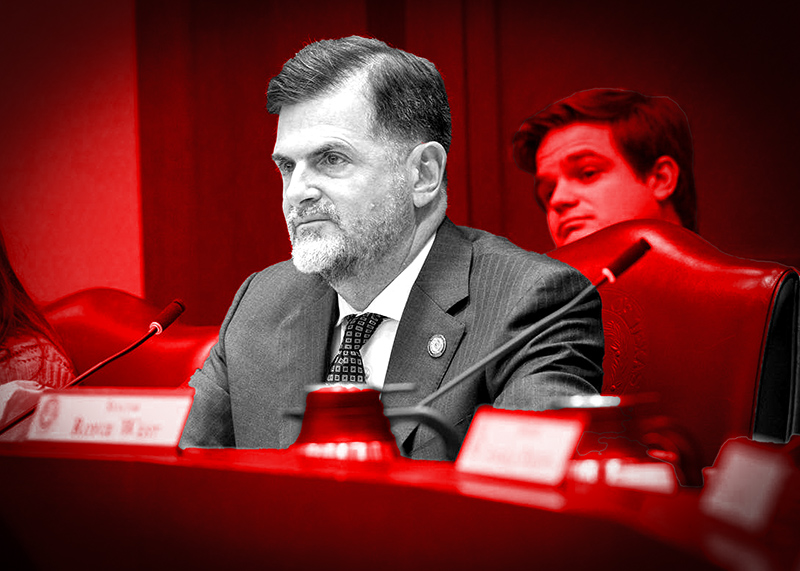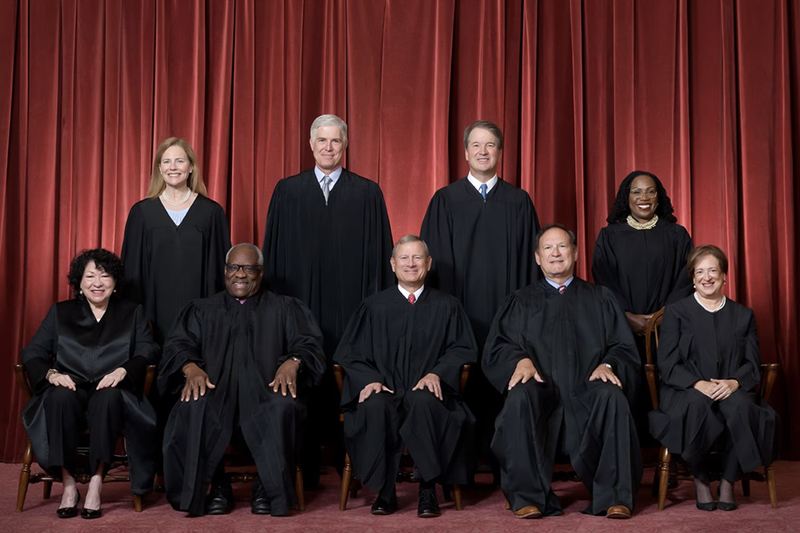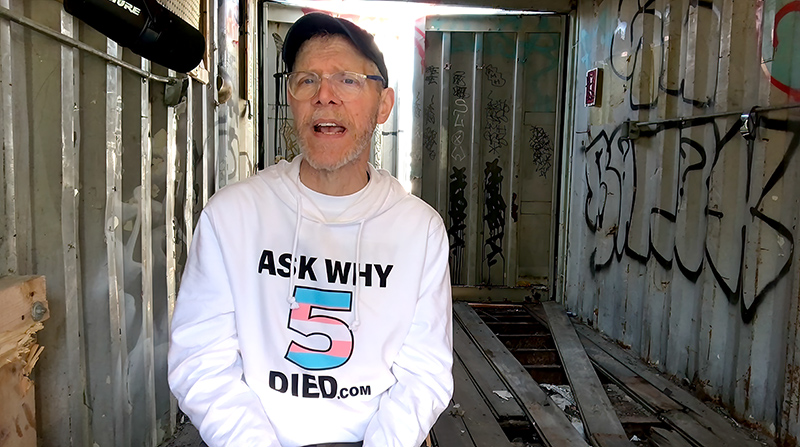Florida advances “Don’t Say Gay” bill silencing talk of LGBTQ issues in school
Critics say the bill, marketed as a "parental rights" measure, will further ostracize LGBTQ-identifying students.

A Florida legislative committee has approved a so-called “parental rights” bill that critics say is overly vague and likely to serve as a gag, preventing teachers from talking about LGBTQ topics in class — even in passing.
Last Thursday, the Florida House Education and Employment Committee approved the “don’t say gay” bill — as some activists have dubbed it — in conjunction with another education-related bill that would permit parents to censor or remove books in school libraries.
Both measures passed largely along party lines, with Democrats opposing them. The “don’t say gay” bill now heads to the floor for debate and an up-or-down vote.
Under the “parental rights” bill, schools are required to ensure parents are informed and able to make decisions about their children’s education or well-being.
The bill also prohibits teachers from “encouraging discussion” about sexual orientation or gender identity in primary-grade levels “or in a manner that is not age-appropriate or developmentally appropriate for students.”
A parent of a student who believes a school district has violated these provisions can bring a lawsuit against the district seeking damages.
A nearly identical companion bill has been introduced in the Senate by Sen. Dennis Baxley (R-Belleview), using much of the same language.
Some parents praised lawmakers for moving to protect parental rights. For example, January Littlejohn, a mother of a child in Tallahassee public schools, testified that her daughter’s school had created a gender identity plan for her daughter without the family’s knowledge or permission — which would be prohibited by the bill.
“When parents are excluded from decisions affecting their child’s health and well-being at school, it sends the message to children that their parents’ input and authority are no longer important,” she said.
But Democrats on the Education Committee argued that the bill’s provisions were vague, demanding more specific definitions of what constitutes “age-appropriate” or “developmentally appropriate.”
They particularly honed in on the prohibition of LGBTQ-related content in schools, questioning whether the bill would be used to gag children of same-sex couples from being able to talk about their parents or their home lives, or punish teachers for addressing students’ questions about LGBTQ-related issues.
The bill’s sponsor, Rep. Joe Harding (R-Williston), said the bill is intended to regulate school and district procedures involving changes to student support services and ensure parents are kept informed of those changes, reports the Miami Herald.
In response to concerns that some LGBTQ youth might face abuse at home if outed, Harding adopted an amendment to the bill that allows teachers to withhold some information in rare cases where “a reasonably prudent person would believe that disclosure would result in abuse, abandonment, or neglect.”
However, other LGBTQ advocates accused Harding and his fellow Republicans of attempting to stigmatize the LGBTQ community, noting that the bill does not address other potentially controversial matters or topics that might be breached in a classroom.
Todd Delmay, one of the first gay men to get married in Florida and a candidate seeking election to a House seat later this year, asserted that the bill might prevent his 11-year-old son from discussing his family at school. In response to that concern, Harding said he understood that such conversations might happen, but wants to ensure there is no policy encouraging or compelling students to engage in such discussions.
“Every single one of you have a sexual orientation,” testified Lakey Love, of the Florida Coalition for Transgender Liberation. “To prohibit discussions of sexual orientation and gender identity is to exclude what it is to be human.”
Chasten Buttigieg, an LGBTQ advocate and the husband of Transportation Secretary Pete Buttigieg, attacked Florida Gov. Ron DeSantis (R), the de facto leader of Florida Republicans, on Twitter over the bill, claiming it would harm LGBTQ youth.
“This will kill kids,” he tweeted. “You are purposefully making your state a harder place for LGBTQ kids to survive in.”
Buttigieg also referenced statistics from a 2021 survey by The Trevor Project, the nation’s top youth suicide prevention and crisis intervention group for LGBTQ youth. That survey found that 42% of LGBTQ youth seriously considered attempting suicide in the past year.
Conversely, a separate report from the organization found that LGBTQ youth who learned about LGBTQ issues or the positive contributions of LGBTQ individuals in schools — the very type of information that would be banned if the bill passes — had 23% lower odds of reporting a suicide attempt in the past year.
“This bill will erase young LGBTQ students across Florida, forcing many back into the closet by policing their identity and silencing important discussions about the issues they face,” Sam Ames, the director of advocacy and government affairs at The Trevor Project, said in a statement. “LGBTQ students deserve their history and experiences to be reflected in their education, just like their peers.”
The National Black Justice Coalition also panned the bill, arguing that it would lead some students to feel unsafe at school, which in turn can have disastrous outcomes on their ability to learn. NBJC point to a survey it worked on with the LGBTQ educational advocacy organization GLSEN, which found that 51.6% of Black LGBTQ students reported feeling unsafe at school because of their sexual orientation, and 40.2% reported feeling unsafe because of their gender expression.
“We’re living in a peculiar time where the privileged minority wish for all of us to embrace a post-truth era…to live as if words don’t have meanings and the truth isn’t worth telling, especially when it makes some of us uncomfortable,” David Johns, the executive director of NBJC, said in a statement. “Truth is we’ve only grown in understanding and strengthened the community by being honest, especially about history and shared experiences.
“Attempting to prevent students from knowing and feeling comfortable using words, histories, and experiences will not make those words, histories, and experiences disappear,” Johns said. “It will only make it easier for students to learn and perform the worst parts of ignorance and hate. Our students deserve better. Our country deserves better.”
Support Metro Weekly’s Journalism
These are challenging times for news organizations. And yet it’s crucial we stay active and provide vital resources and information to both our local readers and the world. So won’t you please take a moment and consider supporting Metro Weekly with a membership? For as little as $5 a month, you can help ensure Metro Weekly magazine and MetroWeekly.com remain free, viable resources as we provide the best, most diverse, culturally-resonant LGBTQ coverage in both the D.C. region and around the world. Memberships come with exclusive perks and discounts, your own personal digital delivery of each week’s magazine (and an archive), access to our Member's Lounge when it launches this fall, and exclusive members-only items like Metro Weekly Membership Mugs and Tote Bags! Check out all our membership levels here and please join us today!




























You must be logged in to post a comment.